|
11/28/2015 2 Comments What would you do with a second life?Signing a copy of Irina: The Trilogy for Caitlyn.. Yesterday, a student read a story in which he'd found a magic stone that granted him a 'second life.' This concept -- astonishing from a grade four pupil -- seemed to me a fascinating premise for a piece of speculative fiction. Assuming you keep your current life, and all the precious experiences within it, what would you do with a second life? Would you pretty much have the same life, with just a few things revised? (Saying yes to a job offer, exploring unused talents, doing things you wish you had time for, actually making those fabulous comebacks we think up later...) Would you run your 'second life' at the same time -- so that you could be a greens activist, or a pilot, or a spy -- and have adventures, and then return to your 'real' life? And if there were no constraints, and you could live in another country, in another time, in another body, what would you choose? Thanks again to the Grade Four class at Croydon Primary, it was wonderful to visit, talk with you about reading and writing, and hear your stories.
2 Comments
The bees in David Malouf's Remembering Babylon.All of us who love to read have those spine-tingling moments where something extraordinary is expressed. One of my favourites is from Remembering Babylon, by David Malouf, when a character called Janet is swarmed by bees:
"Suddenly there was the sound of a wind getting up in the grove, though she did not feel the touch of it, and before she could complete the breath she had taken, or expel it in a cry, the swarm was on her, thickening so fast about her that it was as if night had fallen, just like that, in a single cloud. She just had time to see her hands covered with plushy, alive fur gloves before her whole body crusted over and she was blazingly gathered into the single sound they made, the single mind. Her own mind closed in on her. She lost all sense of where her feet might be, or her dreamy wrists, or whether she was still standing, as she had been a moment before, in the shadowy grove, or had been lifted from the face of the earth... ... You are our bride, her new and separate mind told her as it drummed and swayed above the earth. Ah, so that is it! They have smelled her sticky blood flow! They think it is honey. It is." In a story I'm currently working on, a character gets stung to death by bees, and I remembered and re-read this exquisite piece of Malouf's prose. What's one of your favourite moments from a book? 11/21/2015 1 Comment On Dragons....Dragons -- cliché or archetype? When I was writing The Ragnor Trilogy, a dragon appeared in the story. I was not so much inventing -- the inventiveness comes later -- as transcribing the story I was seeing in my mind, a version of a bed time story I'd told my children. I never intended to write about a dragon... But there he was, the Venerated Dragon of the Narrowlands. For the first two books, Irina The Wolf Queen and Irina and The White Wolf, no-one sees this Dragon. When I was writing the third volume it became clear that Irina would have to confront him... she is chained to a rock in his lair, and it’s a terrifying moment. But I did wonder, why am I writing about a dragon? Have dragons been reduced to clichés through overuse? I kept writing, thinking that perhaps I'd replace the dragon with some monster of my own devising later; but when I was editing, I found that nothing else could stand in for the Venerated Dragon. He was astonishing to me, he was real. Part of his reality was his deep falseness, his layers of lies. This made him a worthy foe for Irina, who has taken on 'the Junsong', Ragnor's creed of truth, as her own personal creed. According to the late myth expert, Joseph Campbell, dragons are part of “the agony of spiritual growth.” The hero must cross threshold after threshold , conquering dragon after dragon, until “the stature of the divinity that he summons to his highest wish increases, until it subsumes the cosmos. Finally, the mind breaks the bounding sphere of the cosmos to a realization transcending all experiences of form ...” A cliché is something that’s become hackneyed or trite. There’s nothing trite about a dragon. Children understand dragons; they know intuitively what they represent, and they have their own private dragons, real or imagined. This is the dragon’s archetypal power, and it transcends cliché. It’s good, even essential, to read that dragons can be slain. Storytelling shows us how we can become more truly our best selves.
Submit your answers by Friday November 27 to my contact form to go in the running to win the cover art for Irina and the White wolf, printed on canvas. Click here
11/19/2015 0 Comments Sienna's book report
Click to set custom HTML
11/15/2015 Image versus Imagination.Does a book's cover steal from us?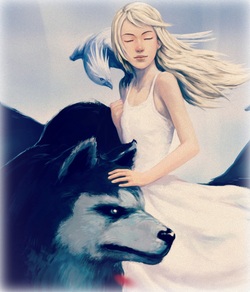 Back in 1977, in the dark ages before the internet and Facebook, Susan Sontag wrote in her long essay "On Photography" that we live in an 'image choked world'. (I wonder what she'd say now, when our appetite for images seems insatiable?) Do images steal from our imagination? Or do they inspire? When I was writing Irina The Wolf Queen, I described the appearance of some characters, but omitted details about Irina, and her friend, Prince Andor. My hope was that young readers would imagine them how they wanted; even project themselves into those characters. And then, there came the book cover. Decisions had to be made. The designer drew Irina blonde, and the image was attractive and eyecatching enough, we hoped, for readers to choose it from the bookstore shelf. Commercial imperatives intruded on the pure innocence of imagining. I still wonder whether it is possible to imagine Irina in some other way, or whether the cover has made that impossible? What do you think? Comments (from Facebook discussion page, Leah Swann - Writer.)Sharon Thompson: Stunning image. Yes, the competitive nature of the market place and the paucity of time (few long, leisurely, loiterings browsing in book shops today) demand work be represented visually and appeal instantly. Gosh, was there really a time before the internet??? Lachie Swann: Images steal from our imagination in the same way that in-articulation prevents us from shaping reality. View 1 more reply Leah Swann: Yes, both rob us of the chance to bring out something, however small, that is unique. Joanne Kyrkilis: Unfortunately I think the image sticks. While I understand the commercial imperative...it does impose on our ability to imagine our own Irina and identify with her. Anne Hadley: I think when we read no matter the cover our own imagination takes over The cover at first glance maybe important but as I read I confess I shape my own visions. Leah Swann: Yes, I'm the same, but I find if I've seen the film of a book the actor tends take over from my imagined character. Irina: the Trilogy is now available in print and as an ebook (perfect Christmas gift for 8-13 year olds!)
Watch the book trailer: here |
AuthorWelcome to my blog about writing, books, arts, ideas and events. Archives
December 2020
Categories |
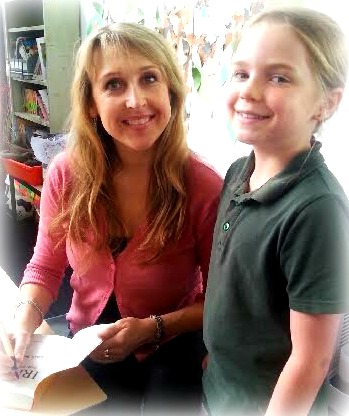

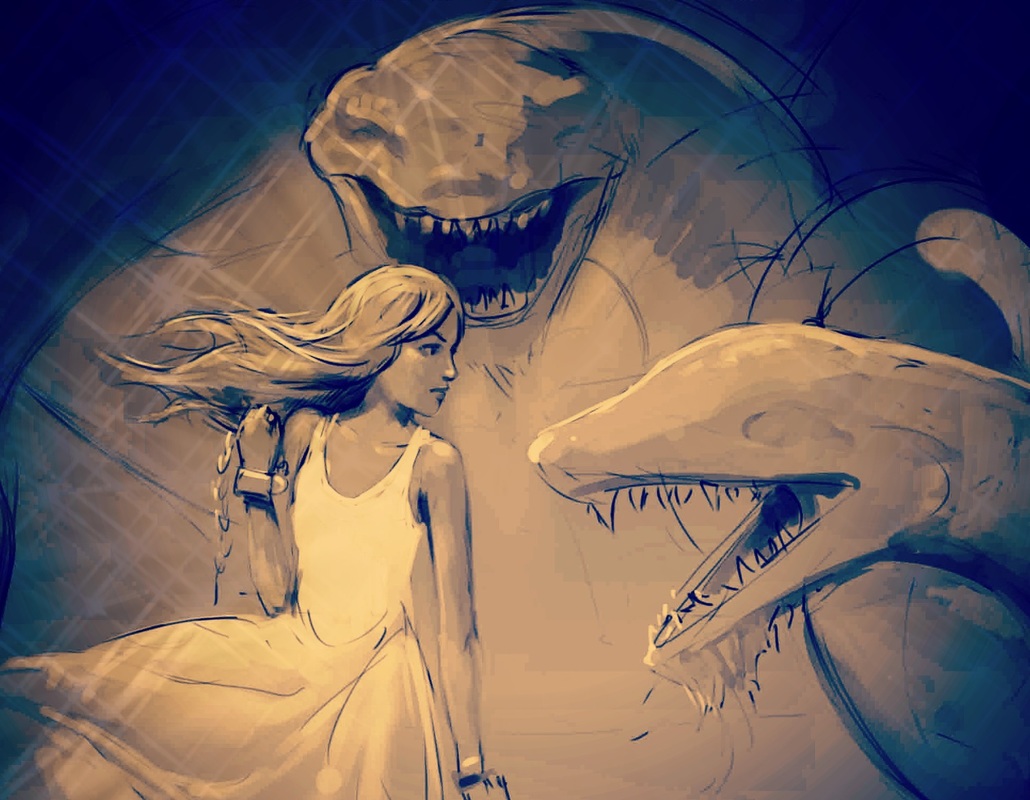
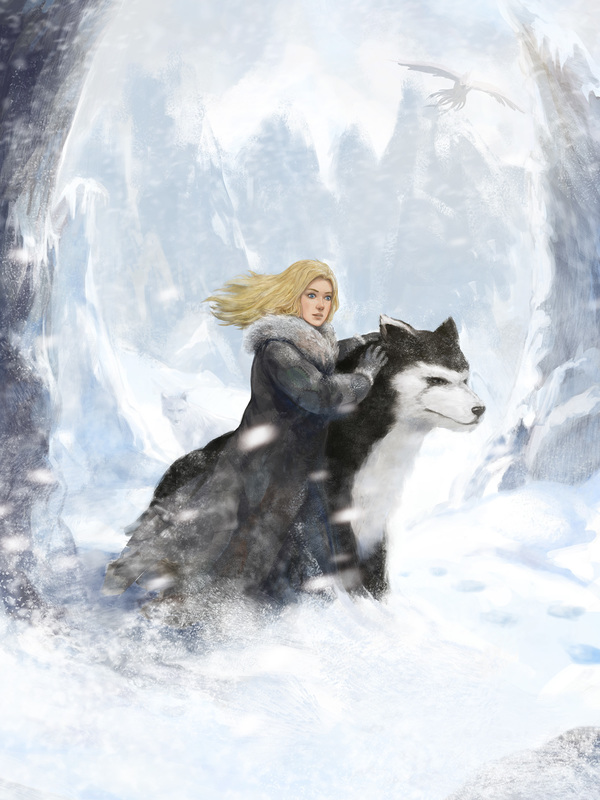
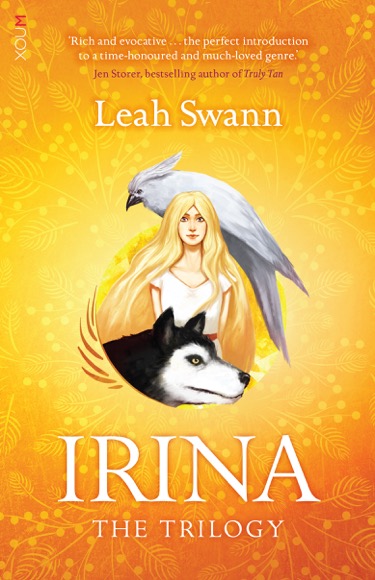

 RSS Feed
RSS Feed